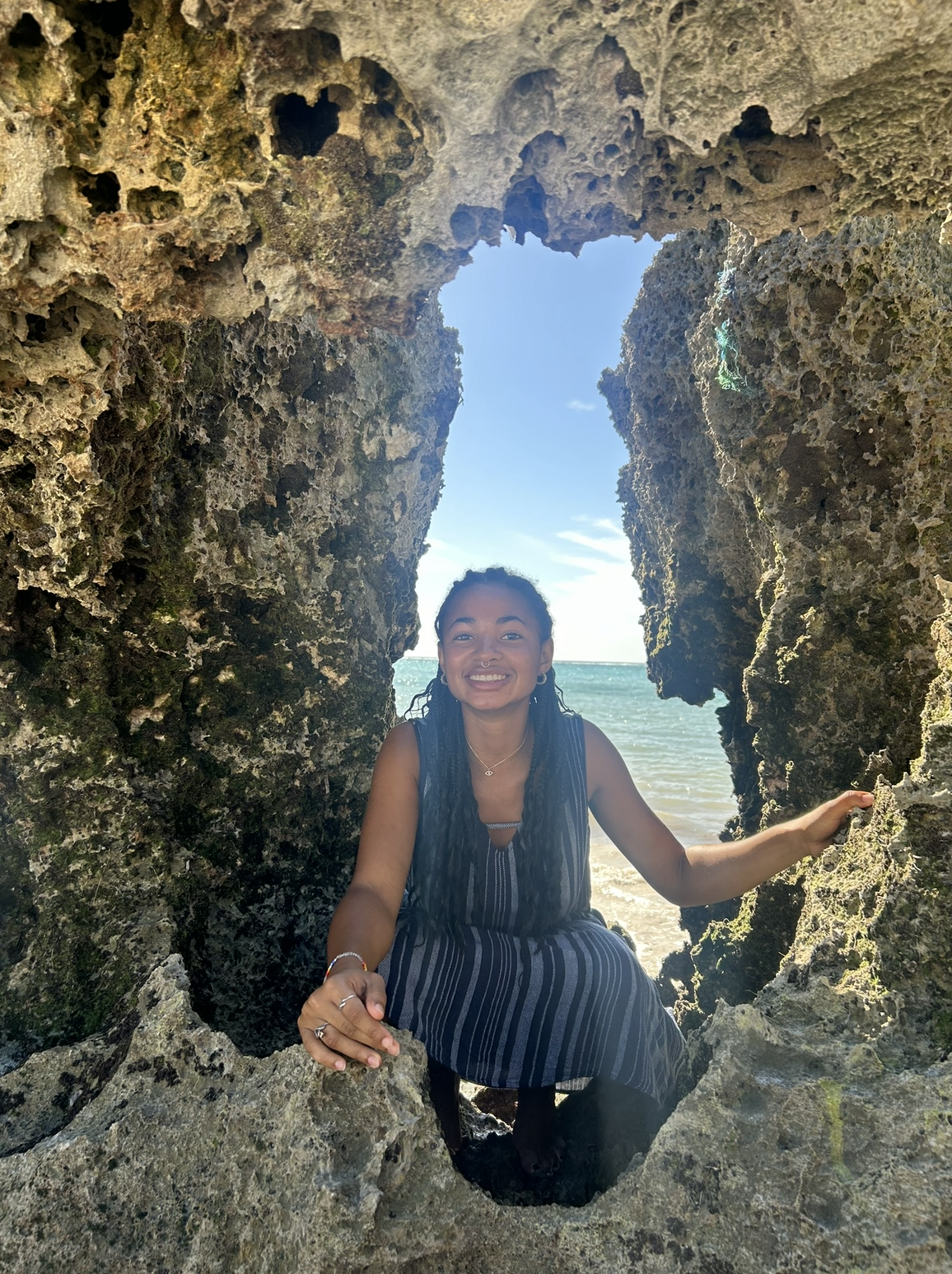Guiding Principles for Off-Campus Study

Helena Souffrant '25 (Kenya)
Off-campus study should be approached intentionally.
- Students will attend advising sessions and programming events offered by OCS to learn the most they can about the opportunities that are available and Bowdoin's application process.
- Students will work closely with the OCS office, professors and peers to identify the program/institution that best fits their academic, cultural, and personal goals.
- Students will reflect on why they have chosen a particular program/university through qualitative essays during the application process.
- Students will revisit their academic, cultural and personal goals while off-campus.
Off-campus study can be for accessible for all students.
- Students should be able to identify study abroad programs/universities that allow them to continue coursework in any academic major.
- Students should not experience undue financial barriers when considering off-campus study. (Read more about off-campus finances.)
- Students should feel supported while considering and participating in off-campus opportunities as it relates to individual identity.
Off-campus study should be academically engaging and reflect the “spirit” of the liberal arts curriculum.
- Students will take all of their coursework in liberal arts subjects while off-campus.
- Students must maintain a full academic load while off-campus.
- Students with advanced language skills will not be allowed to study on programs that are approved for less skilled students.
- Students are responsible for adapting to varied academic cultures and maintaining academic engagement inside and outside of the classrooms of their new environment.
Off-campus study should be integrated into all four years of students’ undergraduate degree.
- Students are strongly encouraged to take coursework that is connected either to their geographic destination or a program’s academic focus prior to their off-campus experience.
- Students are strongly encouraged to link their coursework taken abroad into future academic endeavors at Bowdoin such as independent studies, honors projects, or fellowships.
- Students are encouraged to build upon their off-campus experience back at Bowdoin in pursuits such as community service, internships, research or post-graduate opportunities that further leverage their off-campus studies.
Off-campus study participants benefit most when they consider distinct academic, cultural, and/or environmental settings and then, on-site, fully engage with those settings.
- Students are encouraged to seriously consider the opportunities offered in non-traditional destinations and societies.
- Students are strongly encouraged to take advantage of opportunities to engage with local communities through student clubs, community service, and volunteering.
- Students with at least two years of language coursework prior to study off-campus are strongly encouraged to continue advancing their language skills through course work taken primarily in that target language.
- When optional, students are strongly encouraged to enroll in a foreign language course at the novice level.
- Students are required to be accommodated in housing provided by the study abroad program or institution. When offered and available, students are strongly encouraged to live with locals. Students may not elect independent housing.